- within Energy and Natural Resources and International Law topic(s)
- with readers working within the Technology and Law Firm industries
Barring 2020 to 2022, voluntary delisting offers are few and far between in India.
The spike in delisting offers between 2020 and 2022 was triggered by cash-rich promoters who sought to take advantage of reduced market prices.
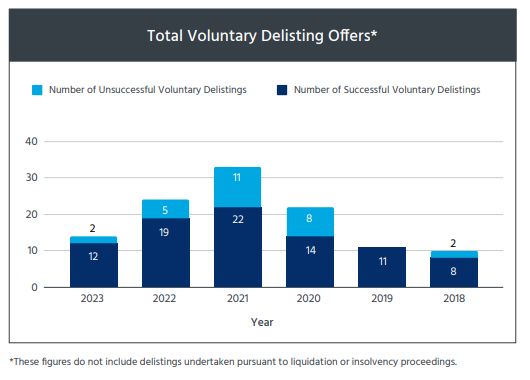
Successful delisting attempts are common among small-cap companies but rare among mid-caps and almost non-existent among large-caps.
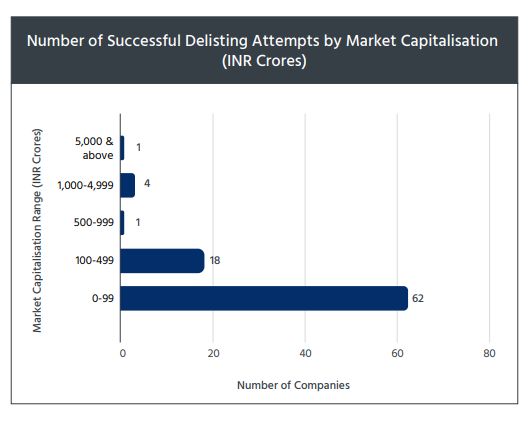
Insufficient interest among public shareholders followed by unreasonably high discovered prices are the key factors contributing to the failure of delisting offers.
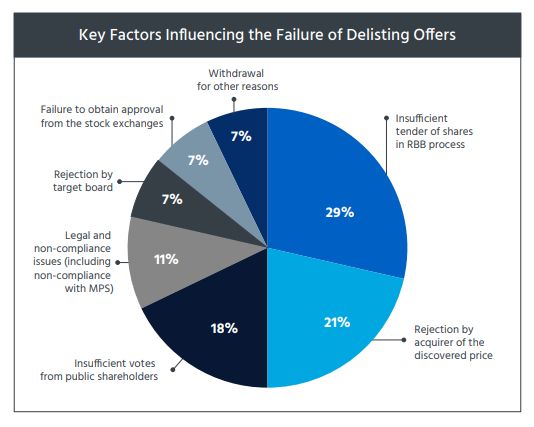
Despite majority public support, delisting offers often fail to meet the 90% shareholding threshold required for counter offers (often so by a narrow margin), prompting SEBI to consider diluting this threshold.
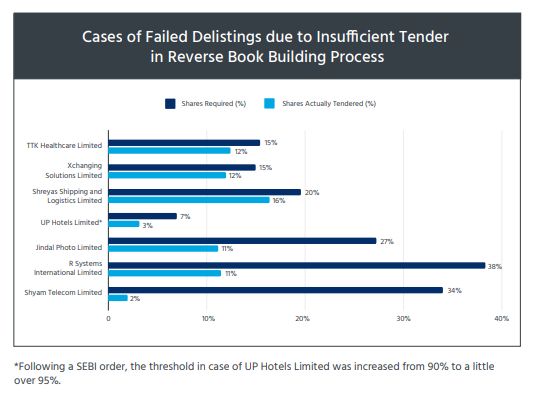
SEBI's August 2023 consultation paper had suggested allowing fixed-price delisting offers under certain scenarios, due to the often excessively high discovered price generated through the reverse book-built price discovery process.
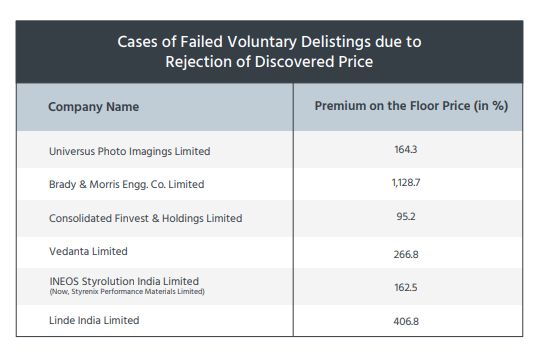
What Next?
The changes previously proposed by SEBI were meant to address the demand and pricing uncertainties faced by acquirers. However, at its recent board meeting in November 2023, SEBI decided to defer the implementation of these changes, citing the need to assess more data. It remains to be seen what further data SEBI needs to assess before deciding on easing the current delisting regime.
The content of this article is intended to provide a general guide to the subject matter. Specialist advice should be sought about your specific circumstances.
[View Source]



